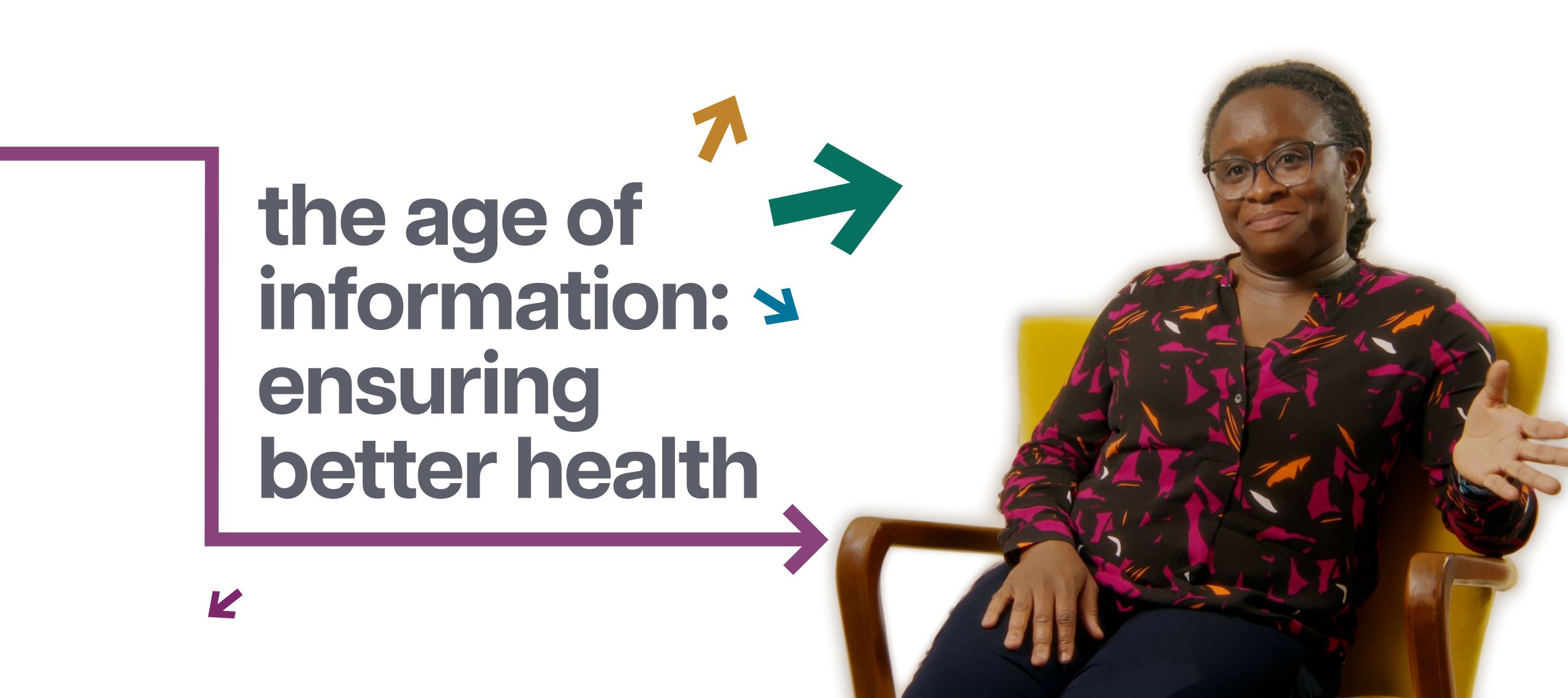
Research Journeys: The age of information: Ensuring better health
I’m exploring the experiences of women from the time of cancer diagnosis and beyond.
After witnessing the challenges faced by loved ones going through cancer treatment, Eme was determined to improve outcomes for people diagnosed with cancer.
Her research on breast cancer across Africa showed how inequality had an impact on survival rates. Through her research she wants to develop better diagnosis and treatments to improve survival rates.
This Research Journey is part of a collection made with members of the 100 Black Women Professors NOW network.
Browse stories from the collection.
Transcript
[Eme is sitting in front of a white background speaking directly to camera.]
Eme: Deciding on a focus for my PhD was not difficult because I had family living with and dying of cancer.
My father had tried to get a diagnosis and had been diagnosed with an enlarged prostate which he had been managing. My father was a professor and had a lot of belief in the health system in my country in Nigeria. And so, even though we had begged him several times to go abroad, to seek a second opinion, he refused. And only did when he wasn't getting any better.
When he finally left the country for another opinion, he was diagnosed with stage 4 cancer and was end of life. And he died a few months later. Shortly after that, I found out that my aunt also had cancer, she had breast cancer. And she died two years later.
My PhD looks at breast cancer survivorship among women living with and beyond breast cancer in Nigeria and Africa. I'm exploring the experiences of women from the time of cancer diagnosis and beyond.
As part of my research, I did a systematic review looking at women's experiences of breast cancer in Africa. Some of the findings from my studies showed that the women lacked knowledge of the signs and symptoms of breast cancer. And healthcare providers were also unable to diagnose breast cancer even after the women had visited the health facilities multiple times.
Many women believed that breast cancer was caused by an enemy and evil forces and many used complementary and alternative medicine before, during and after treatment. The women had information and psychological needs and many felt they had been told about their breast cancer in a casual and indirect manner. In one study, the woman felt that she had been told about her mastectomy as if she was cutting her nails. In another, the woman felt as if she was a science project.
Many women felt uninformed about their treatment options and side effects. In one study, a woman only realised that vomiting was a side effect of her cancer treatment. After she had experienced it and gone back to the hospital to let them know that this is what had been happening to her. Many women, after treatment, didn't feel like themselves because they had lost their hair, their nails had changed colour, their eyebrows were all gone. So they felt abnormal, they felt alien, they felt abstract. They also had fears about stigma and discrimination and many experienced it. In one study, a woman felt she had brought disgrace to her family because she was the only one who had ever had breast cancer. And in another study, her family felt she was contagious and wouldn't allow her to feed her son or allow her to share the same plates and utensils as the rest of the family.
Many of the women experienced financial hardship. They couldn't pay for their treatment. They didn't have transport to and from the health facilities and hardly any of them had health insurance.
As part of my PhD, I brought together the evidence on breast cancer survivorship in Africa. I looked at all the studies that had been done to identify the gaps in literature. And this is to help further studies and also to be able to provide the development of interventions that can be used to improve the quality and length of life of women living with breast cancer in Africa.